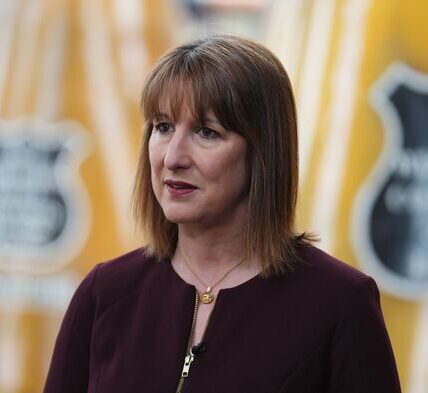The Labour government will deliver its first full Spending Review next week, outlining how much each department will receive through to the end of the decade.

Keir Starmer’s government will announce the spending review next week (Image: undefined via Getty Images)
Keir Starmer is set to give the NHS a £30billion boost in next week’s spending review – at the expense of other struggling public services.
The Department of Health and Social Care is expected to be the biggest winner of the government’s latest financial manoeuvres – but a rise in the health service’s budget will mean services such as police forces and local councils will feel the squeeze even more tightly.
Chancellor Rachel Reeves will hand the NHS the biggest settlement of any public service, with its daily budget expected to rise by 2.8% every year for the next three years in a cash boost worth around £30billion by 2028, The Times reported tonight.
However, Healthcare chiefs are already concerned the investment may not be enough to meet the Prime Minister’s. key targets of bringing down waiting times and moving care out of hospitals and into communities.
No.10 has pledged to have 92% of all patients treated within 18 weeks by the next election. Currently less than 60% meet that target.

Rachel Reeves and Keir Starmer look set to gamble on the NHS in next week’s spending review (Image: undefined via Getty Images)
And with waiting lists unexpectedly rising last month to 7.4million, NHS bosses remain doubtful they will hit the government’s interim goal of 65% by next year.
The move to prioritise health is rumoured to have already led to a number of inter-departmental rows within Whitehall.
Chancellor Rachel Reeves will deliver her first full Spending Review next week, outlining how much each Government department will receive through to the end of the decade.
The review, which will take place on Wednesday, June 11, will set both day-to-day budgets – covering salaries and services like the NHS – and capital investment in long-term infrastructure, such as schools, hospitals and transport.
It follows the interim 2025–26 budget allocations Ms Reeves announced last October during her Autumn Budget. However, the fiscal outlook is tight. Borrowing rose to £20.2billion in April, £1billion higher than the same month last year, due to rising welfare and debt costs – despite increased tax revenue from employer National Insurance Contributions.
Ms Reeves must also comply with the Government’s two self-imposed key fiscal rules that daily spending is funded by tax revenue, not borrowing, and that debt falls as a share of national income by 2029/30.
Current forecasts project a slim £9.9billion surplus – the third-smallest on record – which leaves little room for unexpected shocks.
That limited “headroom” already shrank earlier this year due to sluggish growth and higher debt interest, prompting Ms Reeves to announce £14billion in savings, including £4.8billion in welfare cuts


